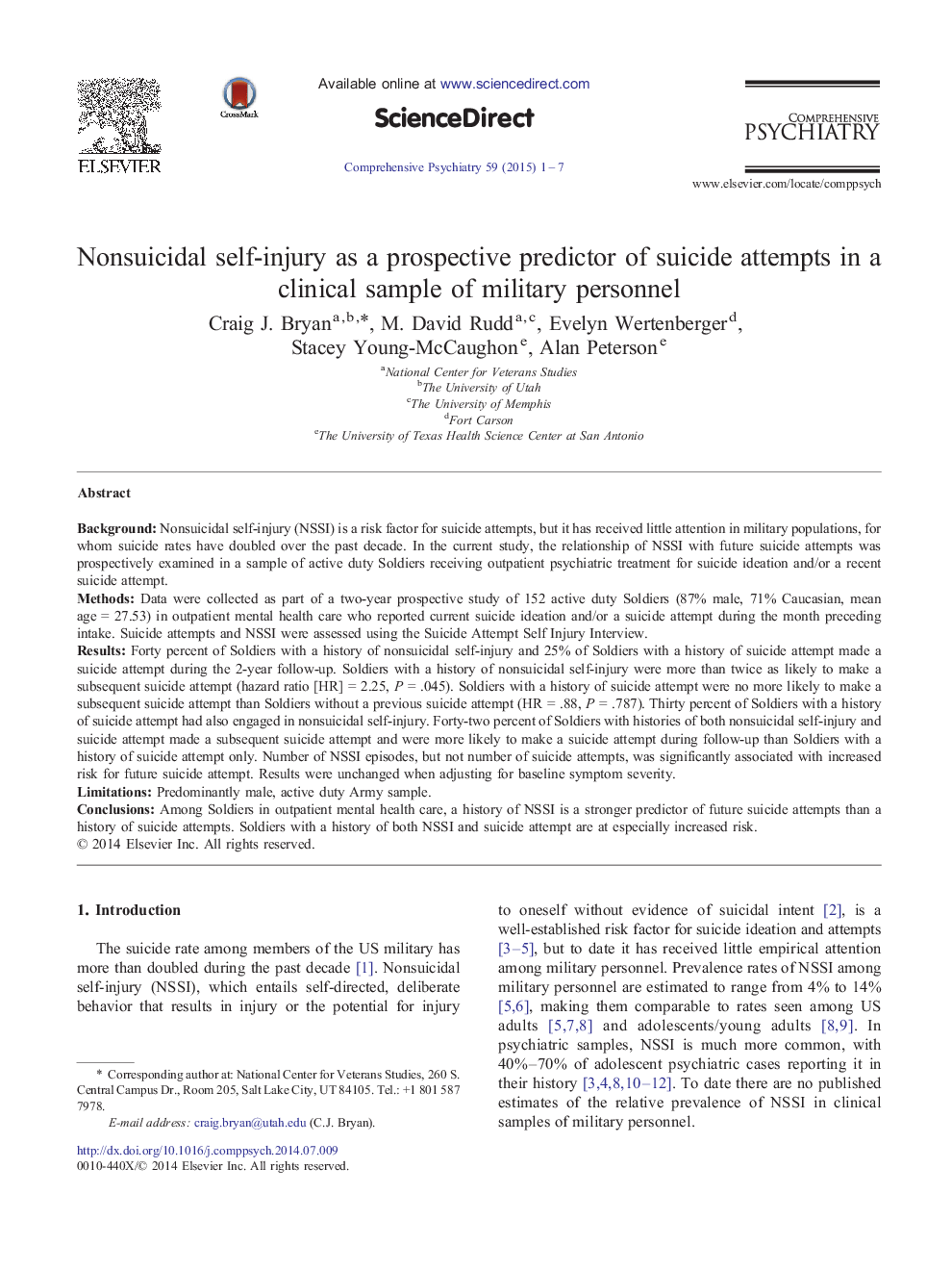| کد مقاله | کد نشریه | سال انتشار | مقاله انگلیسی | نسخه تمام متن |
|---|---|---|---|---|
| 316277 | 537711 | 2015 | 7 صفحه PDF | دانلود رایگان |
BackgroundNonsuicidal self-injury (NSSI) is a risk factor for suicide attempts, but it has received little attention in military populations, for whom suicide rates have doubled over the past decade. In the current study, the relationship of NSSI with future suicide attempts was prospectively examined in a sample of active duty Soldiers receiving outpatient psychiatric treatment for suicide ideation and/or a recent suicide attempt.MethodsData were collected as part of a two-year prospective study of 152 active duty Soldiers (87% male, 71% Caucasian, mean age = 27.53) in outpatient mental health care who reported current suicide ideation and/or a suicide attempt during the month preceding intake. Suicide attempts and NSSI were assessed using the Suicide Attempt Self Injury Interview.ResultsForty percent of Soldiers with a history of nonsuicidal self-injury and 25% of Soldiers with a history of suicide attempt made a suicide attempt during the 2-year follow-up. Soldiers with a history of nonsuicidal self-injury were more than twice as likely to make a subsequent suicide attempt (hazard ratio [HR] = 2.25, P = .045). Soldiers with a history of suicide attempt were no more likely to make a subsequent suicide attempt than Soldiers without a previous suicide attempt (HR = .88, P = .787). Thirty percent of Soldiers with a history of suicide attempt had also engaged in nonsuicidal self-injury. Forty-two percent of Soldiers with histories of both nonsuicidal self-injury and suicide attempt made a subsequent suicide attempt and were more likely to make a suicide attempt during follow-up than Soldiers with a history of suicide attempt only. Number of NSSI episodes, but not number of suicide attempts, was significantly associated with increased risk for future suicide attempt. Results were unchanged when adjusting for baseline symptom severity.LimitationsPredominantly male, active duty Army sample.ConclusionsAmong Soldiers in outpatient mental health care, a history of NSSI is a stronger predictor of future suicide attempts than a history of suicide attempts. Soldiers with a history of both NSSI and suicide attempt are at especially increased risk.
Journal: Comprehensive Psychiatry - Volume 59, May 2015, Pages 1–7
